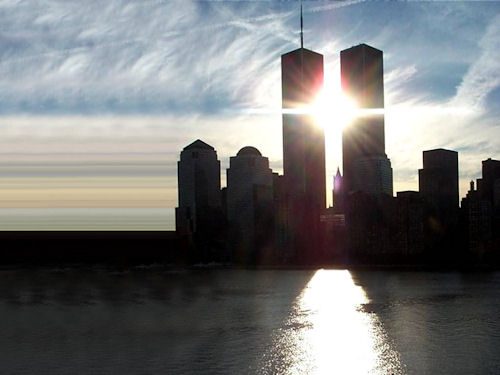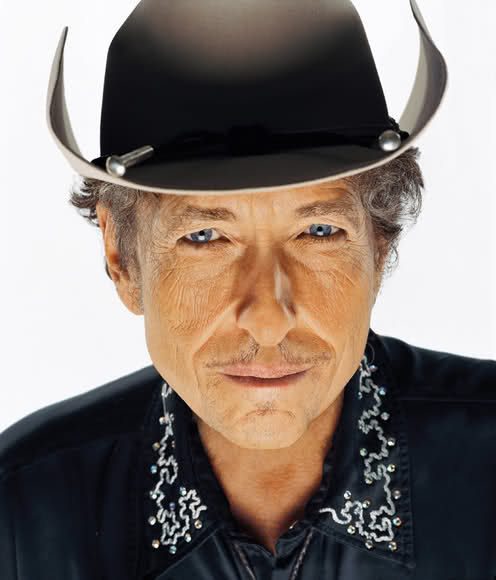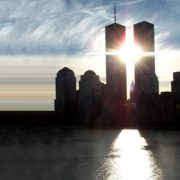REMEMBERING SEPTEMBER 11
 The first new song to come out of the horrific events of September 11, 2001 was Neil Young’s Let’s Roll, named for United Flight 93’s hero Todd Beamer’s last words to his fellow passengers, as they rolled down the aisle to subdue the hijackers and crash their plane into a Pennsylvania farm field rather than let them bring down the White House.
The first new song to come out of the horrific events of September 11, 2001 was Neil Young’s Let’s Roll, named for United Flight 93’s hero Todd Beamer’s last words to his fellow passengers, as they rolled down the aisle to subdue the hijackers and crash their plane into a Pennsylvania farm field rather than let them bring down the White House.
Neil Young broke the ice for his fellow songwriters, as one by one they followed suit, from Bruce Springsteen’s The Rising, to Alan Jackson’s Where Were You When the World Stopped Turning? to Tom Paxton’s fine tribute to the firefighters, The Bravest.
There was also no shortage of songs that struck a more strident note, Toby Keith’s Courtesy of the Red, White and Blue (the Angry American) foremost among them.
Songwriters have always put their guitars (or pianos, or banjos) in the fray, when called to serve their country with their pen.
The greatest American song to come out of World War II was Woody Guthrie’s The Sinking of the Reuben James, unless you count God Bless America, which was written in 1918 during World War I, but only became popular in 1938, when Kate Smith sang it for Armistice Day.
Woody’s song was quite revolutionary for its time and place, coming as it did out of the Almanac Singers, whose public reputation rested on a repertoire of pacifist songs urging America to stay out of the war in Europe. Then in October of 1941 Germany attacked one of our ships—named for a revolutionary war hero—and overnight Woody gave up on pacifism. “I guess we won’t be singing those peace songs anymore,” he said to Pete Seeger. Two months later Japan bombed Pearl Harbor and the rest of the country gave up on isolationism.
Songs are an accurate barometer of public opinion during wartime. No lasting antiwar songs came out of World War II. Only one came out of World War I, I Didn’t Raise My Boy To Be a Soldier.”
It wasn’t until Vietnam that the tide turned: Only one pro-war song became popular, Ballad of the Green Berets, whereas the great antiwar songs of that conflict became the soundtrack to the 1960s—Universal Soldier, I Ain’t Marching Anymore, Where Have All the Flowers Gone, Lyndon Johnson Told the Nation, There But for Fortune, Ohio, and the list goes on. They reflected, and helped to shape, the growing antiwar sentiment in the country at large.
One hundred years earlier the Civil War inspired a similar outpouring of powerful songs, from The Battle Hymn of the Republic and Rally Round the Flag in the North to Dixie and The Bonnie Blue Flag in the South. Great antiwar songs also came to the fore: Ain’t Gonna Study War No More, and Tenting Tonight on the Old Campground. So central was this war to American identity that great songs about the Civil War continued to be written even into the 1950s and 1960s: Two Brothers, In the Hills of Shiloh, and, of course, The Night They Drove Old Dixie Down.
Often the length of a war and its toll in human blood and sacrifice can clearly be observed in the changing tenor of the songs. The early years of America’s War for Independence gave rise to jaunty pro-war tunes like Yankee Doodle Dandy and The Rifleman at Bennington. The truly great antiwar songs came later: Johnny Has Gone for a Soldier, and Johnny, I Hardly Knew You.
September 11 produced an outpouring of patriotic fervor that at first was only fully expressed in the old warhorses of martial anthems: God Bless America and The Battle Hymn of the Republic were both revived with an urgency of feeling unknown since the beginning of World War II. More revealing, however, was Willie Nelson’s choice of the song to end the first telethon by singers and actors to benefit New York’s relief agencies: America the Beautiful. This song is more of a secular hymn than a battle cry—there is not a strident note in it. The poem, written by Katherine Lee Bates and set to a pre-existing melody by Samuel A. Ward is a paean to all we hold dear about our country—it is patriotic in a way that transcends Samuel Johnson’s definition of patriotism: “the last refuge of the scoundrel.”
And its last line—“from sea to shining sea”–was especially meaningful at a time when people across the country came to realize that the heartland of America is not some small town Main Street in the Midwest, but the burned-out rubble of lower Manhattan.
 It may be the same old song, but there’s definitely a different meaning since we been gone. And not just with America’s patriotic hymns—protest songs too resonated in new and unexpected ways since the crime against humanity of September 11. Nowhere could this have been more evident than in the concert Bob Dylan gave at UC Santa Barbara shortly afterwards. I was impatient to hear what he might have to say to the audience about 9/11. Except for introducing the members of his band, however, he said not one word to the audience the entire evening.
It may be the same old song, but there’s definitely a different meaning since we been gone. And not just with America’s patriotic hymns—protest songs too resonated in new and unexpected ways since the crime against humanity of September 11. Nowhere could this have been more evident than in the concert Bob Dylan gave at UC Santa Barbara shortly afterwards. I was impatient to hear what he might have to say to the audience about 9/11. Except for introducing the members of his band, however, he said not one word to the audience the entire evening.
He didn’t have to. His old songs spoke for him. He reached all the way back to 1962 for the three highlights of the evening: Masters of War, A Hard Rain’s a Gonna Fall, and (the song he closed the show with) Blowing In the Wind. But how different they sounded. Listening to Masters of War again after September 11, I heard it not just as a protest against war, but as a call to action. And when he came to the last verse,
And I hope that you die
and your death will come soon
I’ll follow your casket
in the pale afternoon
and I’ll watch while you’re lowered
down to your deathbed
and I’ll stand over your grave
’til I’m sure that you’re dead,
I found myself thinking of Osama Bin Laden.
When he sang his classic reworking of the Child ballad Lord Randall, A Hard Rain’s A’ Gonna Fall, it spoke to the sense of mortal danger and impending doom that we haven’t felt as a nation since the initial inspiration for the song: The Cuban missile crisis of October, 1962. It also underscored the values we cherish—democracy, liberty, equality and individual freedom. I found myself wondering: Are they worth fighting for? Will we be called to join the battle now, in one form or another? What can we contribute? Can we defend our country without abandoning our ideals? Do we have to become like our enemies to defeat them? These are hard questions—and almost any way you think about them you cannot help but feel that a hard rain’s a’ gonna fall.
Then Dylan sang the final lines of Blowing In the Wind:
How many times can a man look up before he can see the sky
And how many ears must one man have before he can hear people cry
And how many deaths will it take ‘til he knows that too many people have died.
It was hard not to recall the images of the World Trade Center coming down, leaving not only the answer, but many new questions blowing in the wind.
Ross Altman may be reached at greygoosemusic@aol.com Ross will be performing a tribute to the 10th anniversary of 9/11 at the CTMS Equinox Festival on Sunday morning, 9/11/11 at 10am













